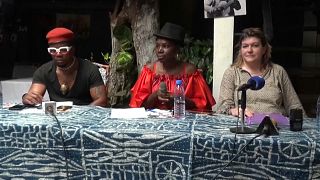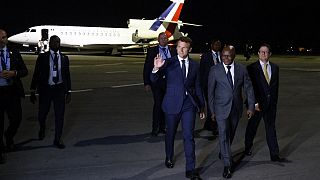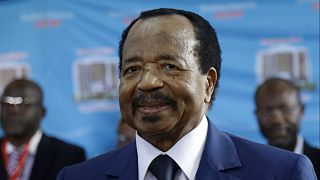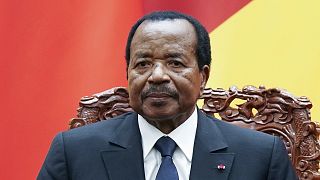Cameroon
A collective of Cameroonian political parties called on President Emmanuel Macron to recognize France's "crimes", a few hours before the head of state's visit to western African states, including Cameroon.
It's Macron's first visit abroad after re-election as he seeks to reboot France's post-colonial relationship with the continent.
"Everything must be done so that Cameroon no longer accepts French hegemony willingly or by force", affirmed Ekane Anicet, president of MANIDEM (African Movement for New Independence and Democracy).
MANIDEM member Bedimo Kuoh added:
"We take the opportunity to address, to again wake the people of Cameroon to the historical problem we have with France. This means, we want to say settle the liabilities, all the crimes that France has committed in Cameroon. We have to put them back on the table", he said.
Talks with President Paul Biya, 89, who has ruled the country with an iron fist for nearly 40 years, are expected to focus on the threat of Boko Haram in the north of the country and an insurgency by anglophone separatists.
After Germany's defeat in 1918, the League of Nations (League), the forerunner of the United Nations, handed over most of the German colony of Kamerun to France and the rest - the western part bordering Nigeria - to Britain.
Before the country's independence in 1960, the French authorities bloodily suppressed the 'maquis' of the UPC (Union of the Peoples of Cameroon), a nationalist party founded in the late 1940s and engaged in armed struggle against the coloniser and his Cameroonian allies, particularly in Bamileke country.
Tens of thousands of pro-UPC activists, including independence leader Ruben Um Nyobè, were massacred first by the French army and then after independence by the Cameroonian army of Ahmadou Ahidjo's regime.












01:01
French Foreign Minister denounces spy charges against couple imprisoned in Iran
01:02
Madgascar's President in Paris to discuss disputed Indian Ocean islets
00:53
Former French president Sarkozy stripped of Legion of Honour medal
01:00
Interact with art in 'Euphoria: Art is in the Air' at Grand Palais
Go to video
Brazil's Lula da Silva calls Israel's Gaza offensive 'premediated genocide'
01:05
South Africa's ex-president loses bid to have arms deal graft charges dropped